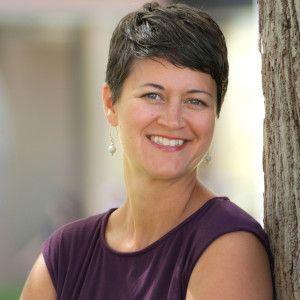Total Worker Health® Professional Program
Set yourself apart, change workplace culture, and shape the future of work.
About the training
This training, developed by experts at the Colorado School of Public Health, delivers practicing professionals essential tools for creating thriving workplaces. After completing this program, you will be prepared to apply the Total Worker Health (TWH) approach, applied solutions that advance worker health, safety, and well-being.
This online program will help you understand the benefits of the TWH approach and how to masterfully apply it in any organization. Upon completing the course, you will receive a certificate of completion.
Who should apply
Ready to take the next step in shaping workplace culture? This training is for you! This program adds value to the experience of:
- Occupational health and safety experts
- Benefits and HR professionals
- Business owners, executives, senior managers
- Public health professionals
What people are saying
My organization was looking for a solution to well-being and I had exploration of TWH in my five-year plan.
My organization liked the idea and pulled it forward, however with my limited TWH knowledge, I wanted to develop a basis for it going forward.
— Anonymous industrial hygienist
I currently work in consulting. I’ve noticed clients have an increased interest in applying different strategies to engage their workers and improve employee retention. I apply TWH concepts when developing strategies to help clients engage their remote, hybrid, or returning to the office workforce.
— Anonymous ergonomics & safety professional
As someone that is new to the field I found it helpful for building a foundation in TWH. In the clinical world, it has sadly been overlooked…
— Anonymous physician leader
Curriculum
This program is designed for working professionals that are seeking on-demand training. The online course will cover:
- An introduction to TWH
- Skills and case studies on how to design a customized, inclusive, and effective TWH program
- How to engage management and workers in TWH
- How to maintain a culture of TWH in different industries
How to enroll
Enroll in the course here.
Online enrollment provides learners with 3-month access to all course materials.
Program faculty

Katherine Dickinson PhD, MS
- Department of Environmental & Occupational Health
Email Address:katherine.dickinson@cuanschutz.edu
Primary Phone:720-505-3958
Dr. Katie Dickinson is an Associate Professor with tenure of Environmental and Occupational Health in the Colorado School of Public Health, and a JPB Environmental Health Fellow. Her interdisciplinary research examines environmental and climate justice issues and the impacts of policies and programs on health and social outcomes. International projects have addressed problems at the nexus of environmental quality, economic development, and human health, including water and sanitation, household energy and air pollution, and mosquito-borne diseases. Domestically, she has studied drivers of environmental health (in)equity in the context of wildfire, infectious disease (including COVID-19 and mosquito-borne disease), and oil and gas development. Dr. Dickinson has a passion for teaching students about environmental and occupational health policy, and how public health professionals can partner with change-makers at different levels to build healthier and more resilient communities where everyone can thrive. Katie enjoys spending time with her three bright and witty daughters and her husband Caleb, who serves as a City Council member in their hometown of Louisville, Colorado.
Areas of Expertise
- Environmental economics
- Environmental justice
- Social survey design and analysis
- Impact evaluation
- Community-engaged research
Education, Licensure & Certifications
- PhD, Environmental Economics, Duke University, 2008
- MS, Earth Systems, Stanford University, 2003
- BA, Earth Systems, Stanford University, 2002
Resumes/CV:
Awards
- JPB Environmental Health Fellow, Harvard T.H. Chan School of Public Health, 2018-2021
Affiliations
- Fellow, JPB Environmental Health Fellows Program
- Affiliate, Mortenson Center in Global Engineering, University of Colorado Boulder
- Science and Research Committee Member, Denver Sustainability Advisory Council (SAC)
This program is supported by a cooperative agreement (2 U19OH011227-06-00) with the Centers for Disease Control and Prevention’s National Institute for Occupational Safety and Health as part of one of 10 national Centers of Excellence for Total Worker Health and a cooperative agreement (T42OH009229) with the Centers for Disease Control and Prevention’s National Institute for Occupational Safety and Health as part of one of 18 national Education and Research Centers.
Total Worker Health® is a registered trademark of the U.S. Department of Health and Human Services (HHS). Participation by the Center for Health, Work & Environment does not imply endorsement by HHS, the Centers for Disease Control and Prevention, or the National Institute for Occupational Safety and Health.


